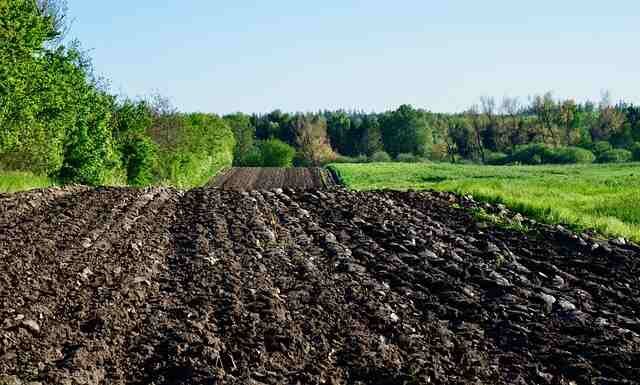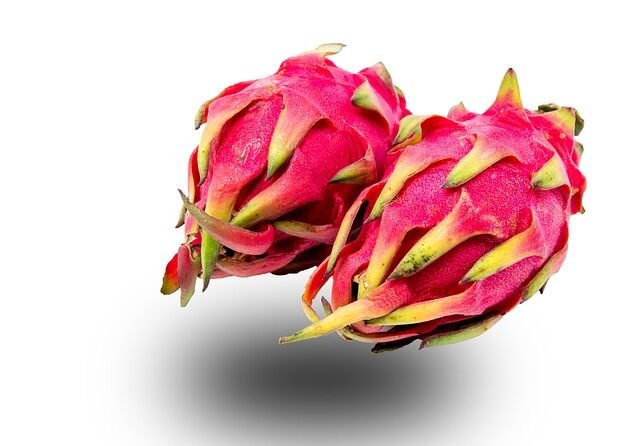Most nursery plants flourish in marginally acidic to unbiased soils, ordinarily inside a pH scope of 6 to 7.
Soil pH influences the synthetic type of supplements, impacting their accessibility to plants. For instance, in exceptionally acidic soils with a pH beneath 5.2, fundamental supplements like phosphorus, calcium, and magnesium become less accessible, while poisonous components like aluminum and manganese can turn out to be more solvent, possibly hurting plant roots. Of course,in major soils with a pH above 7.5, supplements like iron, manganese, and phosphorus become less open, inducing needs.
Testing Soil pH: Techniques and Significance.
Understanding soil pH is key for diagnosing and amending supplement needs your nursery. For example, assuming your blueberries, which lean toward acidic soil, are showing yellow leaves with green veins (a side effect of lack of iron), it could demonstrate that your dirt pH is excessively high. Then again, in the event that your lettuce, which flourishes in nonpartisan to marginally basic soil, shows hindered development and purplish leaves (an indication of phosphorus lack), your dirt may be excessively acidic. Changing the dirt pH can assist with moderating these issues, guaranteeing that your plants approach the supplements they need to develop and flourish.
Soil pH is a key consider creating in light of the fact that it straightforwardly influences supplement receptiveness and in ordinary plant thriving. Precisely when soil pH is outside the ideal reach for a particular plant,it can instigate supplement deficiencies or poisonous substance levels, influencing the plant’s new development and viability. For instance, in acidic soils with a pH under 5.2, supplements like phosphorus, calcium, and magnesium turn out to be less open to plants. This can prompt side effects like hindered development, unfortunate root advancement, and stained leaves. Furthermore, acidic circumstances can expand the solvency of destructive components like aluminum and manganese, which can be poisonous to plants, causing root harm and disrupting supplement take-up. Then again, in dissolvable soils with a pH above 7.5, supplements like iron, manganese, and phosphorus become less open. Plants filling in these conditions could show aftereffects like chlorosis (yellowing of leaves), lamentable turn of events, and diminished blooming or fruiting.
Normal Soil pH Issues and Their Belongings
Consistently testing your dirt pH assists you with recognizing possible issues before they become extreme. Different strategies can be utilized to test soil pH, counting pH test packs, pH meters, and master lab testing.Home pH test packs are helpful and reasonable, normally comprising of test strips or a colorometric arrangement that changes variety in light of the pH of the dirt example. For additional precise outcomes, pH meters can be utilized, giving a computerized perusing of the dirt’s pH level.For the most careful assessment, you can send a soil guide to an exploration place, where it will be analyzed using complex equipment. Testing your soil pH is a critical push toward sorting out your nursery’s prosperity and reaching informed decisions about how to additionally foster it.
Home Soil pH Test Packs and Advanced Meters
There are a few techniques accessible for testing soil pH, each with differing levels of precision and comfort. Home pH test packs are a well known decision among grounds-keepers since they are reasonable and simple to utilize. These packs regularly incorporate test strips or a fluid arrangement that changes tone when blended in with a dirt example, demonstrating the pH level. To utilize a test unit, gather a dirt example from a few spots in your nursery, blend it in with water, and afterward plunge the test strip or add the arrangement. The variety change can measure up to a pH scale graph furnished with the unit, providing you with a good guess of your dirt’s pH. For additional exact estimations, a computerized pH meter is a magnificent instrument. These meters give a moment advanced readout of the dirt pH and are more precise than test packs. To utilize a pH meter, embed the test into the dirt and trust that the perusing will balance out. It means a lot to clean the test between tests to guarantee exact outcomes. Computerized pH meters are somewhat more costly than test units however are a beneficial speculation for serious nursery workers. Assuming you really want profoundly exact and point by point data about your dirt’s pH and supplement content, consider proficient lab soil testing. Sending a dirt example to an expert research facility considers an exhaustive examination of your dirt’s supplement levels, surface, and natural matter substance, giving significant data to making a custom-made soil the board plan.
Normal Strategies to Lower Soil pH
Changing soil pH normally includes different strategies that can assist you with making the best developing circumstances for your plants without depending on manufactured synthetic compounds. Assuming you really want to bring down the dirt pH and make it more acidic, a few natural materials can be utilized. Manure is an incredible choice, as it separates and normally ferments the dirt while adding important supplements and further developing soil structure. Pine needles are another magnificent decision, particularly for corrosive adoring plants like blueberries and azaleas. When utilized as mulch, pine needles gradually decay and lower the soil pH. Peat greenery is additionally compelling; blending it into the dirt can essentially increment sharpness, however it’s not unexpected best utilized in mix with other natural materials because of its ecological effect. Sulfur is an ordinarily utilized normal revision to bring down soil pH; it works by changing over completely to sulfuric corrosive in the dirt, a cycle worked with by soil microorganisms. Applying basic sulfur to the dirt can bit by bit bring down pH north of a while. For instance, adding 1 to 2 pounds of sulfur for each 100 square feet can lessen the pH of sandy soil by one. Espresso beans, wealthy in nitrogen, can likewise assist with acidifying the dirt. They are best utilized with some restraint, blended in with other natural matter, to stay away from nitrogen over-burden. Then again, assuming that you really want to raise the dirt pH and make it more antacid, a few regular materials are accessible. Lime is the most well-known revision for this reason; dolomitic lime and farming lime are both successful at raising soil pH. Wood debris is one more superb change for expanding soil pH; it contains calcium carbonate, like lime, and can rapidly kill acidic soils. Be that as it may, it’s fundamental for use wood debris sparingly, as an excessive amount of can raise the pH excessively high and possibly hurt plants. Eggshells, made basically out of calcium carbonate, can likewise be utilized to raise soil pH. Pulverizing and integrating them into the dirt can slowly increment alkalinity while adding calcium, which is gainful for plant wellbeing.
Keeping up with Ideal Soil pH
Keeping up with ideal soil pH is a nonstop cycle that includes standard testing and key changes in accordance with guarantee your nursery stays rich and useful. Mean to test your dirt pH no less than one time each year, ideally in the spring prior to planting. Utilize a solid pH test pack or computerized pH meter to get exact readings and change your dirt administration rehearses in view of the outcomes. Integrating natural matter is fundamental for adjusted soil pH. Natural matter like fertilizer, very much decayed excrement, and natural mulches helps cradle soil pH, forestalling extraordinary changes and keeping a steady climate for plants. Mulching is another suitable framework for staying aware of soil pH; normal mulches like straw, leaves, and grass clippings rot over an extended time, consistently conveying enhancements and regular acids into the soil. This drowsy conveyance adjust soil pH, preventing unexpected developments that can hurt plants. Using crop turn and cover yields can moreover help with supervising soil pH; different plants ingest and convey various enhancements, influencing soil science. Turning crops with different pH tendencies can help with changing soil pH for a really long time. Likewise, laying out cover crops like clover, horse feed, or rye can additionally foster soil structure, add normal matter, and help with settling pH levels.Keeping away from abuse of compound composts is significant for keeping up with soil pH. Substance composts, particularly those high in nitrogen, can ferment the dirt over the long run.Taking everything into account, use normal excrements like compost, bone supper, or fish emulsion, which are less disposed to cause outrageous pH changes. Regularly checking and changing your soil pH ensures that your nursery remains a friendly environment for plant improvement. By incorporating regular matter, mulching, practicing crop turn, and using normal excrements, you can keep a sensible soil pH that maintains sound, helpful plants. This proactive method for managing soil the chiefs prevents supplement insufficiencies and toxic substance levels, provoking a more grounded and prospering nursery.
NPK Testing and Supplement The board
As well as testing your dirt’s pH, NPK testing is a fundamental part of soil investigation that actions the degrees of three basic macronutrients: nitrogen (N), phosphorus (P), and potassium (K). These supplements assume crucial parts in plant development and advancement. Nitrogen is vital for verdant development and is a critical part of chlorophyll, which plants use in photosynthesis. Phosphorus is significant for root advancement, bloom and organic product creation, and generally speaking plant energy move. Potassium assists with water guideline, illness obstruction, and by and large plant energy. Guaranteeing adjusted levels of these supplements in your dirt is essential for keeping a sound and useful nursery.
To play out a NPK test, you can utilize a home soil test pack or send a dirt example to an expert research center. Home test packs are helpful and give a fast method for evaluating the supplement levels in your nursery soil. These packs commonly incorporate test cylinders, reagents, and variety outlines. To utilize the pack, gather soil tests from various region of your nursery, combine them as one to make a composite example, and adhere to the unit guidelines. An expert soil test gives more point by point and precise outcomes. To send an example to a lab, gather soil from a few spots in your nursery, blend it completely, and place a piece in a perfect holder. Labs utilize progressed strategies, for example, spectrometry to investigate the dirt’s supplement content. The results will consolidate accurate levels of nitrogen, phosphorus, and potassium, close by recommendations for revisions considering your specific establishing targets.
Interpreting NPK test results is dire for pursuing informed soil the bosses choices. For instance, in the event that your dirt test shows low nitrogen levels, you could see horrendous plant improvement, yellowing leaves, and decreased energy. To address this, you can add nitrogen-rich changes like feces, manure, or blood feast. For phosphorus deficiency, portrayed by upset improvement and awful root development, bone supper, rock phosphate, or fish bone triumph can be added to the soil. Potassium need, which can cause delicate stems, leaf consume, and hopeless certification from sickness, could benefit from some mediation by adding potash, wood garbage, or kelp supper.Changed NPK levels vary dependent upon the sorts of plants you’re creating. For instance, blended greens like lettuce and spinach require higher nitrogen levels, while root crops like carrots and potatoes benefit from higher phosphorus. Natural item bearing plants, for instance, tomatoes and peppers prosper with changed nitrogen and higher potassium levels to help normal item improvement.
Keep in mind, keeping up with adjusted soil pH and supplement levels is vital to advancing sound development, forestalling supplement lacks, and expanding your nursery’s efficiency. Whether you’re utilizing manure, lime, pine needles, or other natural revisions, these normal techniques will assist you with making a flourishing and manageable nursery.
Happy gardening!



